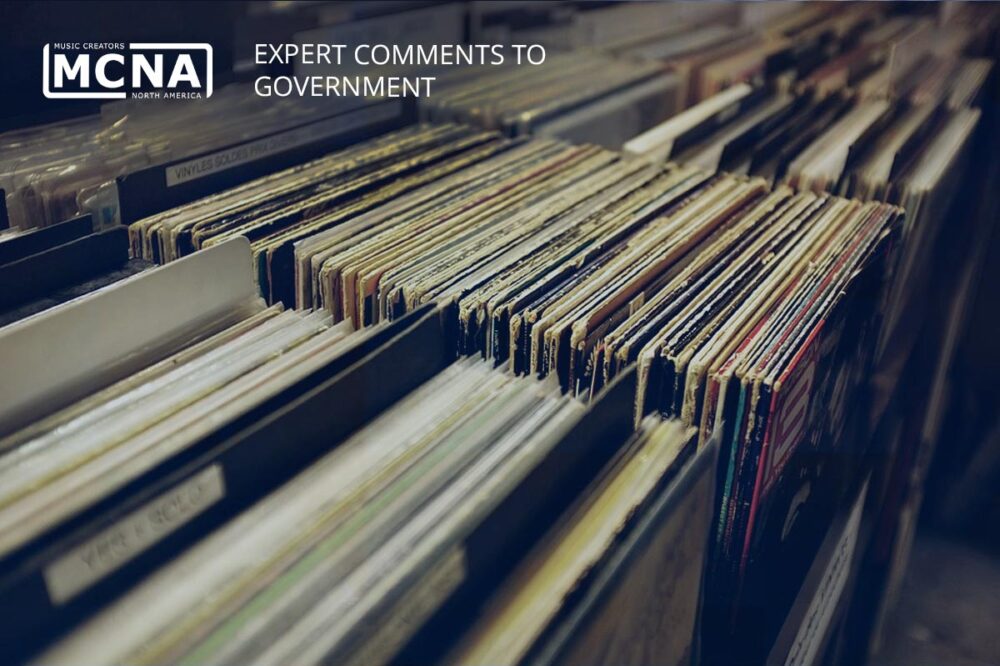Independent music creator organizations look forward to working with Copyright Office in protecting songwriter and composer rights
July 8, 2019, New York City – The Songwriters Guild of America, Inc. (SGA), the nation’s largest and longest established advocacy organization run solely by and for music creators, has announced its support for the strict oversight approach adopted by the US Copyright Office this week in naming the consortium led by the major, multi-national music publishers as the official Music Licensing Collective (MLC) under the Music Modernization Act. The Copyright Office made clear, as requested by SGA in recently filed comments, that it intends to take an active role in reviewing the activities of the MLC in light of the potential conflicts of interest inherent within a board of directors that will include major music publisher representatives.
Under the Act, the MLC is charged with identifying the rightful owners of hundreds of millions of dollars in unmatched streaming royalties. Those royalties that cannot be tied to particular owners, according to the law, will eventually be distributed to music publishers on a market share basis. “Obviously,” according to songwriter and SGA president Rick Carnes, “under such circumstances you need an independent, outside overseer to make sure that those potentially conflicted board members who would benefit from the MLC doing a lax job in identifying the proper copyright owners do not utilize their positions to pursue unjust enrichment of their companies, despite the best efforts of songwriters, composers and truly independent music publishers on the board to achieve equitable results.”
In specifically citing SGA’s comments that meaningful oversight is an imperative under the law, US Register of Copyrights Karyn Temple concluded that “[t]he Copyright Office has been provided with ‘broad regulatory authority’ to conduct proceedings as necessary to effectuate the statute with the Librarian’s approval. In addition to the regulations that the Office is specifically directed to promulgate, the legislative history contemplates that the Office will ‘thoroughly review’ policies and procedures established by the MLC … The Office intends to conduct its oversight role in a fair and impartial manner; songwriters are encouraged to participate in these future rulemakings.”
SGA had noted in its comments that it was “far more concerned with ensuring that music creator rights are fully protected against conflicts of interest and impingements upon the rights and interests of songwriters and composers under all circumstances, than in supporting one or the other candidate vying to be selected as the Mechanical Collective.” The organization is satisfied with the Registers’ recognition of the Copyright Office’s oversight opportunities and obligations, and very much looks forward to working side by side with the Office on various issues concerning MLC policies and actions.
Carnes closed by stating, “for over 85 years, SGA has operated with a two-word mandate: ‘Protect Songwriters.’ And that applies to the rights of both American and foreign music creators. Congress intended, and the president’s signing statement confirmed, that the Copyright Office is to play a key role in pursuit of that same protective mandate. The Copyright Office’s stated willingness and obvious ability to accept that challenge is very encouraging, and SGA –with the welcome participation of many of its fellow songwriter organizations in the Music Creators North America (MCNA) alliance and MCNA’s affiliated, global music creator advocacy groups– intends to do all within its power to assist it in doing so.”
Carnes also noted that in the event that it proves necessary to take further appropriate action, for example, to make certain that proper diligence is exercised by the MLC in attempting to identify copyright owners of unmatched royalties prior to distributing “permanently” unmatched royalties, or to ensure that contractual royalty splits with songwriters and composers are honored by publishers after receipt of unmatched royalties, “SGA is ready, willing and able to do that.” SGA is also studying the issue of whether the statutes’ placement of limitations on damages for those plaintiffs who bring copyright infringement lawsuits after January 1, 2018 against digital music distributors is actually violative of the Fifth Amendment’s “takings clause,” rendering that section of the Act unconstitutional and unenforceable.
“SGA and the entire, independent music creator community have our work cut out for us,” he said. “But we are fully prepared to do whatever is prudent to protect the rights and interests of songwriters and composers and look forward to working closely with the US Copyright Office and the entire music creator community in doing so.”
The member organizations of Music Creators North America, of which SGA is a founding member, have endorsed this statement.




